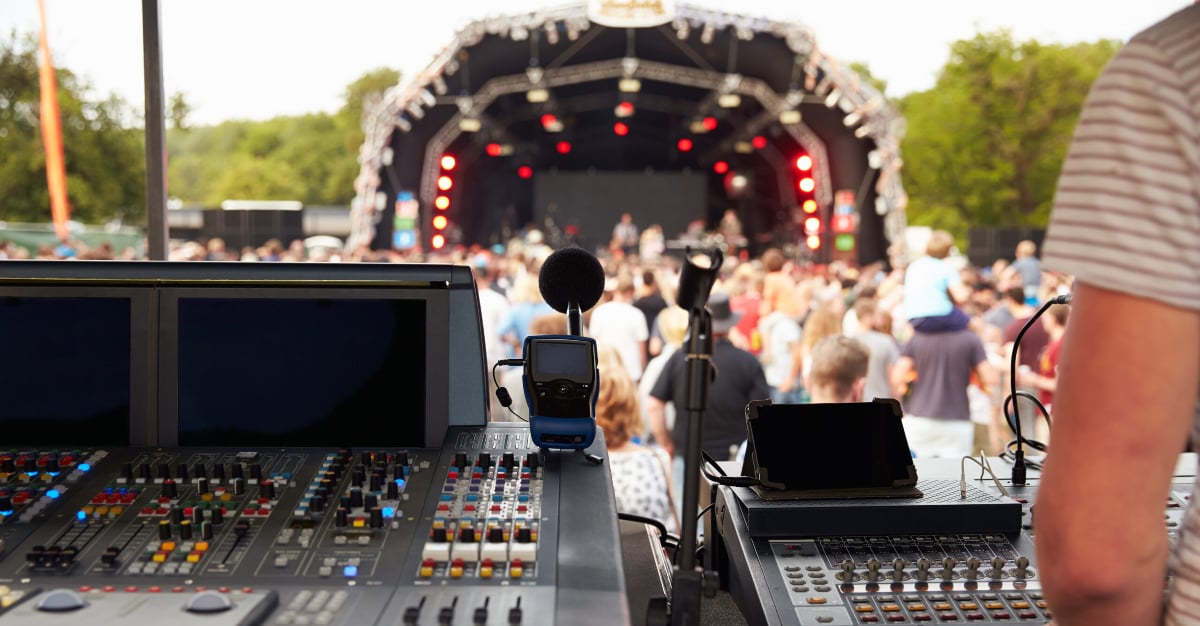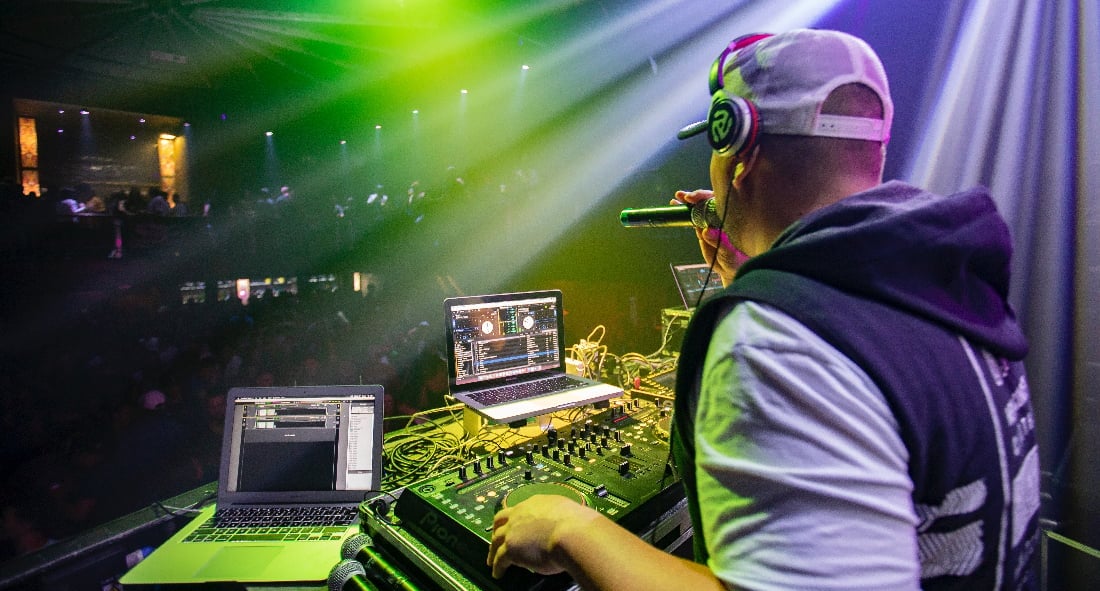What is an Audio/Visual Technician
An audio/visual technician in the music industry work behind the scenes to ensure that the audio and visual elements of a music production are properly set up and executed. In terms of audio, an audio/visual technician sets up and operates sound systems, including microphones, amplifiers, speakers, and mixing consoles.
They work closely with the artists, producers, and engineers to achieve the desired sound quality and balance during performances. This includes microphone placement, sound checks, adjusting levels, and troubleshooting any technical issues that may arise.
When it comes to visuals, an audio/visual technician is involved in setting up and operating the visual equipment for concerts or events. This may include lighting systems, video projectors, LED screens, and special effects. They work closely with lighting designers and video technicians to create a visual experience that complements the music performance.
Additionally, an audio/visual technician may be responsible for tasks such as stage setup, equipment maintenance, equipment rental coordination, and ensuring compliance with safety regulations. They need to have a solid understanding of audio and visual equipment, signal flow, troubleshooting techniques, and the ability to work effectively under pressure. They play a crucial role in ensuring that the technical aspects of a music production are properly executed, enhancing the overall experience for both the performers and the audience.


What does an Audio/Visual Technician do
In the music industry, an audio/visual technician has various responsibilities related to the technical aspects of live performances, concerts, and events. They set up and configure the sound system for concerts or events, which involves placing and connecting microphones, speakers, amplifiers, mixing consoles, and other audio equipment.
They will conduct sound checks before performances to ensure that the sound levels and quality are appropriate. They may need to adjust microphone placements, set sound levels for instruments and vocals, and address any audio issues. During the performance, they adjust the levels, EQ (equalization), and effects to create the right sound mix for the performers and the audience.
Making sure the equipment and gear are in proper working order before the show is another duty for the AV tech. This includes checking cables, replacing faulty equipment, and troubleshooting any problems. Some audio/visual technicians handle lighting and visual elements, such as screens behind the artists or around the venue.
Technicians must stick to safety regulations and ensure that all audio and visual equipment meets industry standards. They consider factors like power distribution, grounding, and emergency procedures to maintain a safe environment. An audio/visual technician plays a crucial role in setting up, operating, and maintaining the technical aspects of live performances, ensuring that the audience enjoys an immersive and high-quality audio/visual experience.
How do you become an Audio/Visual Technician
Begin by gaining a solid understanding of audio and visual equipment used in most music venues. This includes sound systems, mixing consoles, microphones, amplifiers, lighting systems, video projectors, and other relevant equipment. You won’t be working with top of the line gear at every show, so make sure you have a wide base of knowledge.
Learn about signal flow, audio principles, lighting techniques, and video synchronization. Practical experience is crucial for becoming an audio/visual technician. Seek opportunities to work with local bands, theaters, event production companies, or audio/visual companies. Offer to assist in live events, concerts, or productions, even if it means starting as a volunteer or intern.
Continuously work on improving your technical skills–setting up sound systems, operating mixing consoles, and troubleshooting audio issues. Familiarize yourself with lighting setups, programming consoles, and operating visual equipment. Stay updated with the latest advancements in audio and visual technology.
Work/collaborate with other more experienced A/V techs in the area. They can show you the ropes or even use your help with their gigs. This practical experience will only help sharpen your trade but also get your name out there. You can meet these people at industry events, trade shows, and conferences to meet other pros. Networking can lead to job opportunities, recommendations, and collaborations.
As you gain experience, create a portfolio showcasing your work. Include photos, videos, or recordings of events you have worked on. Once you have built up a solid portfolio, start looking for job openings in event production companies, concert venues, audio/visual rental companies, recording studios, or freelance opportunities.








